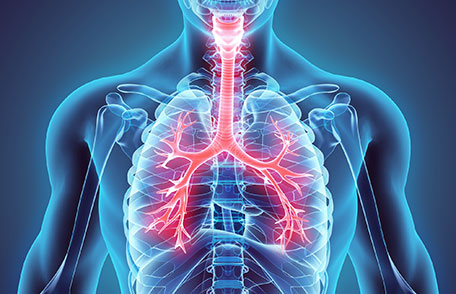
Chronic obstructive lung disease, or COPD, afflicts more than 24 million Americans and is the third leading cause of death in the U.S. This devastating disease attacks the lungs, making it more and more difficult to breathe as the disease progresses. Although chronic pain is not a primary symptom of COPD, it will often accompany it because of persistent coughing and muscular contraction in the chest. This pain will usually develop in the shoulders, chest, neck and lower back.
Almost 32 to 60 percent of people with COPD will also develop these chronic pain symptoms, which can, in turn, produce anxiety, sleep problems, and added respiratory problems. That is why it is essential to learn pain management techniques for COPD and use them religiously. These pain management strategies are intended to minimize your pain symptoms by offering symptom relief or improving your overall health.
One of the most important techniques for COPD symptom relief is breathing control. You can optimize your oxygen intake by maintaining good posture which includes sitting up straight and using your diaphragm in slow, focused breathing. This kind of controlled, relaxed breathing should limit tension in many of the muscle groups prone to pain symptoms.
Another important consideration in managing COPD pain is improving your diet. Many of the foods that we eat are not beneficial for pain management, so minimizing them can help you feel better and mitigate pain symptoms. High sodium content causes water retention which may make breathing more difficult and exacerbate your chronic pain. Fatty and processed foods produce gas and bloating which may cause chest pain.
You may want to switch to unprocessed foods like fish or lean meat, as well as grains, fruits and vegetables to maximize your nutrient intake. You may also want to try eating smaller meals more often throughout the day to avoid bloating.
For many people with mild pain symptoms associated with COPD, over-the-counter pain relievers like ibuprofen or acetaminophen may provide effective pain management. If your pain is severe, your physician may recommend more potent medications like opioids, but you should use these with caution because opioids used in large doses can inhibit breathing function.
One of the most common complications related to COPD is anxiety or depression. The stress of a chronic health condition along with persistent pain can produce unhealthy emotions that also exacerbate the chronic pain symptoms. That is why many COPD patients respond positively to antidepressant therapy. Medication along with counseling may relieve this emotional stress as well as physical discomfort.
These pain management techniques for COPD are typically included in a pulmonary rehabilitation (PR) program that your physician will recommend. PR is one of the most effective ways to minimize symptoms, slow the progression of COPD, and extend your life, so you should adhere to the program guidelines as closely as possible. This is a long-term commitment, but you should understand that without PR, your ability to function and your quality of life could diminish dramatically.
Article written by: Dr. Robert Moghim – CEO/Founder Colorado Pain Care
M.D. Disclaimer: The views expressed in this article are the personal views of Robert Moghim, M.D. and do not necessarily represent and are not intended to represent the views of the company or its employees.



